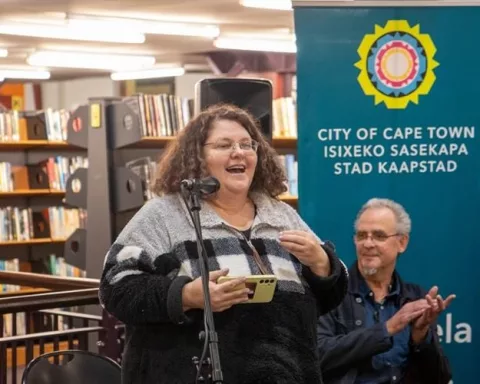The National Treasury has extended the application deadline for the Eskom Municipal Debt Relief Support Programme to help ease the financial pressure experienced by South African municipalities. The initiative aims to alleviate Eskom’s financial and debt crisis by providing eligible municipalities with the opportunity to apply for debt relief under strict terms and conditions. By September 22, 2023, 28 municipalities have been approved, while nine applications remain under review, and another 25 are pending submission for approval. The programme is just one aspect of a broader strategy to address the systemic issues plaguing the South African utility sector, requiring collaboration and reforms for a sustainable future.
Deadline Extension for Debt Relief Applications
In an effort to ease the financial pressure experienced by South African municipalities, the National Treasury has decided to extend the application deadline for the Eskom Municipal Debt Relief Support Programme. This new deadline is now set for October 31, 2023, providing eligible municipalities with additional time to apply for debt relief.
Launched under the National Treasury’s Intergovernmental Relations unit, the Eskom Municipal Debt Relief Support Programme was established in response to Eskom’s financial and debt crisis. The primary objective of this initiative is to enhance the utility company’s financial position and enable the clearance of municipal debt under strict terms and conditions, as supervised by the National Treasury. This strategic move targets the escalating issue of municipalities not paying for their electricity consumption.
To persuade municipalities to participate in the debt relief programme, the National Treasury’s Intergovernmental Relations unit held several workshops across the nation. These sessions were devised to dispel misunderstandings, clarify any uncertainties municipalities might have, and discuss the conditions tied to the programme.
Municipalities Applying for Debt Relief
As of March 31, 2023, Eskom was owed a staggering R58.5bn in overdue debt by 136 of South Africa’s 257 municipalities. By September 22, 2023, 37 municipalities had submitted applications for the Eskom Municipal Debt Relief Support Programme. Out of these applicants, 28 have been approved, while nine applications remain under review. In addition, another 25 applications are pending submission by their respective provincial treasuries for approval.
The extended application deadline showcases the government’s dedication to addressing the financial difficulties faced by both Eskom and the municipalities. With more time to apply, it is expected that a greater number of municipalities will benefit from the debt relief programme, resulting in a more robust utility sector and a better financial future for all parties involved.
However, the Eskom Municipal Debt Relief Support Programme is merely one aspect of a larger strategy to tackle the systemic issues plaguing the South African utility sector. Poor financial management, subpar infrastructure, and inadequate service delivery all contribute to the ongoing challenges faced by municipalities and utility companies alike.
Collaboration and Reforms for a Sustainable Future
As South Africa’s municipalities continue to struggle with these challenges, it is crucial for government entities, the private sector, and non-profit organizations to collaborate and develop innovative solutions. The Eskom Municipal Debt Relief Support Programme is an excellent illustration of how cooperation and targeted intervention can lead to tangible progress in the utility sector.
The effectiveness of this programme ultimately depends on the municipalities’ ability to not only secure debt relief but also to implement the necessary reforms and restructuring measures to prevent a relapse of these financial issues. By adhering to the stringent conditions set forth by the National Treasury and reassessing their financial management practices, municipalities have the chance to turn their financial situations around and foster a brighter, more sustainable future for their communities.
In summary, the extended application deadline for the Eskom Municipal Debt Relief Support Programme is a welcome opportunity for South Africa’s struggling municipalities. The programme’s emphasis on addressing the systemic factors that have contributed to Eskom’s financial crisis, along with the collaborative efforts among various government entities, holds the potential to effect transformative change within the utility sector. Furthermore, the programme serves as a reminder of the importance of financial accountability, sound management, and continuous collaboration in promoting a more sustainable South African economy.
1. What is the Eskom Municipal Debt Relief Support Programme?
The Eskom Municipal Debt Relief Support Programme is an initiative launched by the National Treasury’s Intergovernmental Relations unit to provide eligible municipalities with the opportunity to apply for debt relief under strict terms and conditions. The primary objective of this programme is to alleviate Eskom’s financial and debt crisis by enhancing the utility company’s financial position and enabling the clearance of municipal debt.
2. Why was the programme established?
The programme was established in response to Eskom’s financial and debt crisis. The escalating issue of municipalities not paying for their electricity consumption has caused immense financial pressure on Eskom.
3. What is the deadline for the debt relief application?
The National Treasury has extended the application deadline for the Eskom Municipal Debt Relief Support Programme to October 31, 2023.
4. How many municipalities have applied for the programme?
37 municipalities have submitted applications for the Eskom Municipal Debt Relief Support Programme as of September 22, 2023.
5. How many municipalities have been approved for debt relief?
28 municipalities have been approved for debt relief as of September 22, 2023.
6. What is the objective of the programme?
The programme aims to alleviate Eskom’s financial and debt crisis by enhancing the utility company’s financial position and enabling the clearance of municipal debt under strict terms and conditions, as supervised by the National Treasury.
7. What are the systemic issues plaguing the South African utility sector?
Poor financial management, subpar infrastructure, and inadequate service delivery are all contributing factors to the ongoing challenges faced by municipalities and utility companies alike in the South African utility sector.
8. What is needed for a sustainable future in the South African utility sector?
Collaboration and innovative solutions are needed between government entities, the private sector, and non-profit organizations to address the systemic factors and implement necessary reforms and restructuring measures. Financial accountability, sound management, and continuous collaboration are essential in promoting a more sustainable South African economy.








